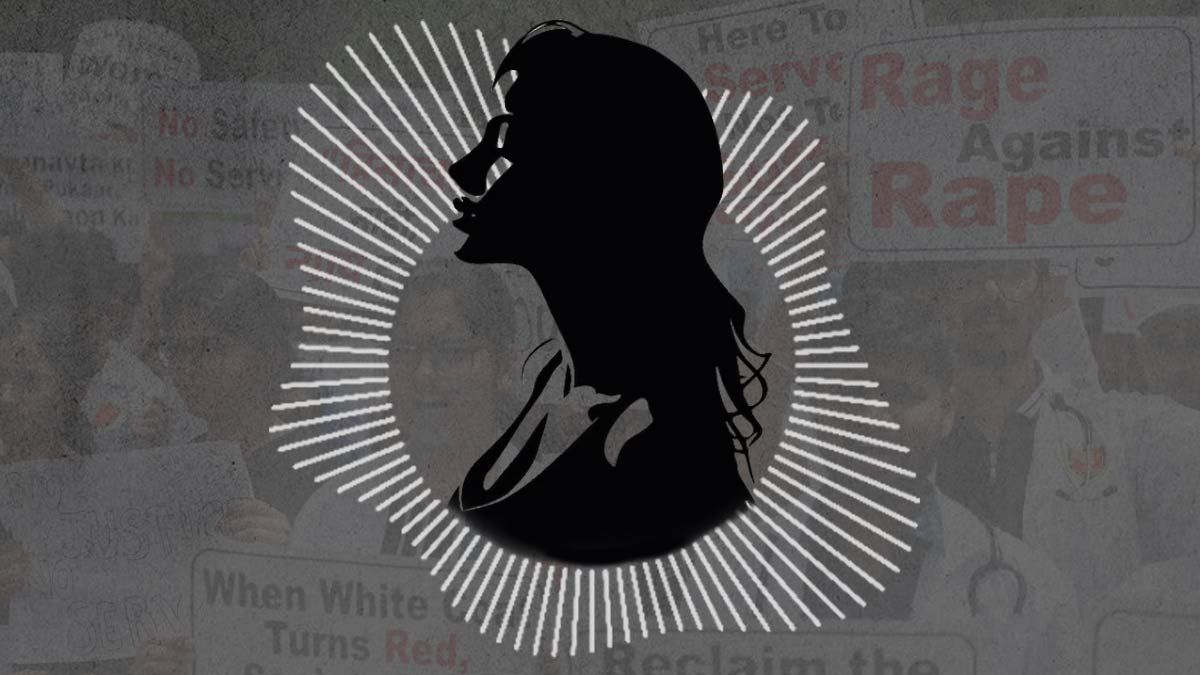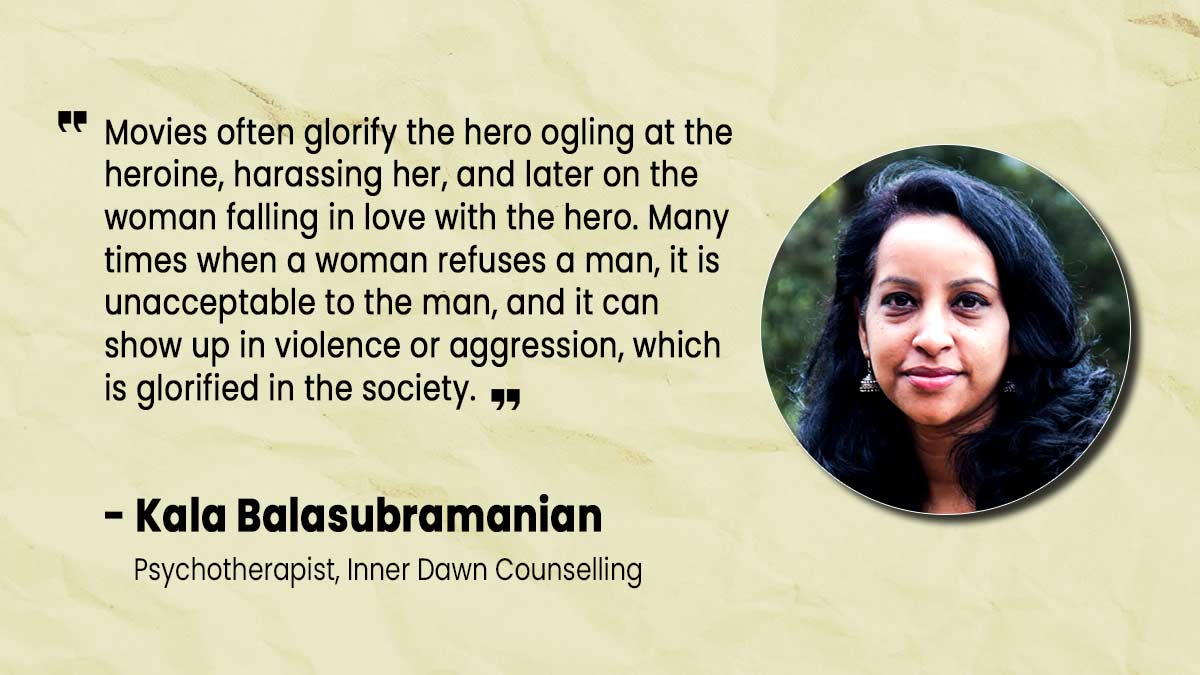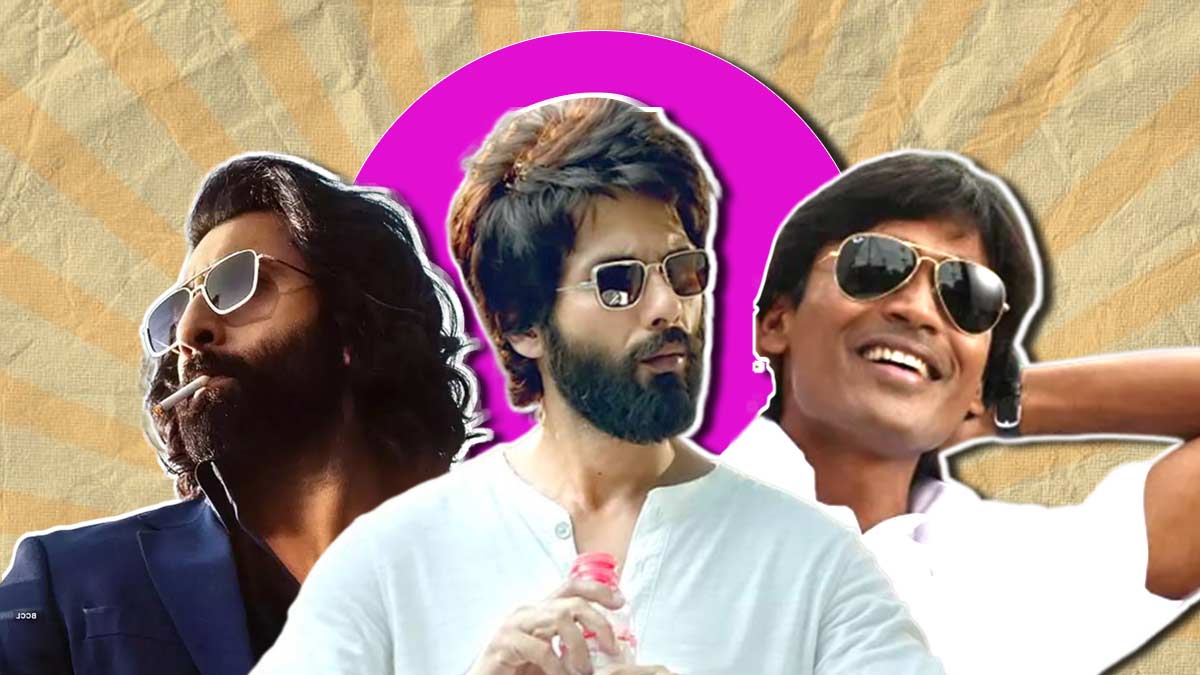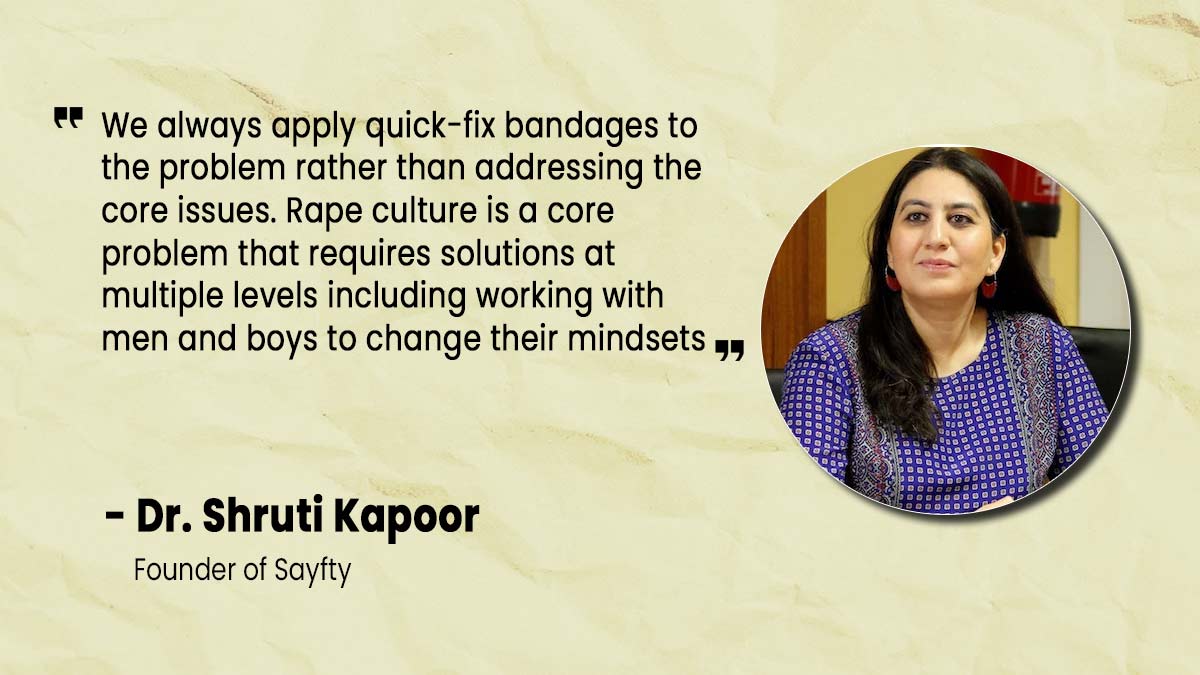
A Decade After Nirbhaya: Unraveling India's Enduring Rape Culture
In 2012, the horrific rape and murder of Nirbhaya in Delhi sparked nationwide outrage, leading to protests and calls for reform. Yet, twelve years later, the brutal rape and murder of a trainee doctor in Kolkata ignited similar public anger, raising a disturbing question: why haven’t things changed?
In 2012, National Crime Records Bureau (NCRB) data recorded about 25,000 rape cases per year. Since then, the average has hovered around 30,000 cases annually. According to the NCRB data from 2017, 93% of rape cases in India were committed by people known to the victim. In 2022 (the latest available data), over 31,000 cases were reported.
“It shows us how little progress we have made at addressing the root of the problem,” says Dr Shruti Kapoor, founder of Sayfty, an organisation working towards educating and empowering women against sexual violence for over a decade.
Despite the introduction of stricter laws, the allocation of dedicated funds for women’s safety, and the establishment of numerous organisations aimed at combating sexual violence, the incidence of rape in India has not significantly decreased. This article delves into the persistent rape culture in India, analysing the deep-rooted societal attitudes and systemic failures that perpetuate such heinous crimes. What drives this culture, and why, despite all the efforts, do the numbers remain stubbornly high?
Deep-seated Patriarchy and a Desire to Exert Dominance
Kala Balasubramanian, Psychotherapist, Inner Dawn Counselling pointed to the “ingrained, internalised patriarchy” where Indians are socialised in a certain way right from their childhoods. “There is a fundamental belief that people hold on to — that men are more powerful than women and women need to be subservient,” she said.
Dr Kapoor highlighted “men and boy’s mindset — treating women as second-class citizens” as one of the reasons behind such high rates of rape cases in India.
1
2
3
4
Tanisha RK, Chief of Social Voice and co-founder of Sangya Project, says that we first need to understand and accept the motivations behind rape. “Rape is not something that stems from a maddening lust or desire to be intimate with someone, it’s a show of power. Rape is the desire to humiliate, degrade, and abuse power over another,” they explained.
 In a research paper titled ‘Rape vs Patriarchy: A Sociological Analysis’, Dr Swati Singh wrote that, “It (rape) is the ultimate humiliation for a woman in which her self-respect and her dignity are attacked in patriarchal social settings. The men motivated by the combination of power and anger especially in a patriarchal society prove their masculinity by exerting sexual dominance over women.”
In a research paper titled ‘Rape vs Patriarchy: A Sociological Analysis’, Dr Swati Singh wrote that, “It (rape) is the ultimate humiliation for a woman in which her self-respect and her dignity are attacked in patriarchal social settings. The men motivated by the combination of power and anger especially in a patriarchal society prove their masculinity by exerting sexual dominance over women.”
The paper further highlights that rape is often a form of showing domination and control over women.
Kala also pointed to how our ingrained patriarchy tends to shift the blame to the victim. “The ‘boys will be boys’ mentality is propagated, and women get blamed.”
An overarching lack of respect for women is at the core of a mindset that leads to rape.
Tanisha stated, “Patriarchy is the reason we shame men constantly for not being man enough. We want them to be sexually aggressive and insatiable. Patriarchy doesn’t allow men to be human beings who can communicate their emotions or be complex individuals, it demands that they operate as thoughtless sex machines, and that constant demand from them is why we have men who struggle to express their emotions or be vulnerable. Patriarchy trains them to be aggressive at all costs, even as it destroys themselves, even as it escalates into violence against the people closest to them.”
“We also need to re-look at how men are being raised, especially by the women,” said Anuja Kapur, a criminal psychologist. “I have two boys. If they cannot respect me, I'm sorry, they cannot respect anybody else.”
She further explained that how women are treated overall in the household, plays a crucial role in shaping how boys grow up viewing women.
The Lack of Sex Education
A skewed understanding of sex— often shaped by porn, social media and movies, and a culture of shame surrounding sexuality contributes to regressive mindsets that lead to sexual violence and rape.
“The reason we see rape as a tool of violence that can be wielded against someone to break them down is because we barely see sex for all that it is,” explained Tanisha RK. “We see sex as something men need constantly and cannot function without, and as something that women must be available to provide to the men around them. This is a skewed power dynamic from the get-go,” she added.
For most youngsters in the country, sex education is either absent or very limited.
Read: Sex-Positive Sex Education: Bringing Pleasure & Fun Back To Intimacy
Kala highlighted sex is seen as a forbidden topic and a forbidden act, that often piques curiosity. “As a psychotherapist, I see so many clients coming in with so many wrong notions about sexuality and consent because their only education has been through porn,” she said.
She added, “Today, with the internet being freely available, makes pornography available to all, without any restrictions of age or anything. Even children get exposed to it and start experimenting with other children, so you’ll see cases of a nine-year-old raping a three-year-old. It’s because there’s an artificial environment with unbridled access to inappropriate content at the wrong age.”
Tanisha explains that this lack of sex education also significantly impacts how people grow up viewing sex and consent.
“With sex education, we learn to see all individuals as capable of having different sexual needs. It teaches men to be more than the sexual stereotypes assigned to them by society, it teaches women to engage with their sexual desires and needs in empowering and soothing ways. Sex ed teaches you the value of seeking consent from others while also teaching you to understand your body and thoughts and to hold yourself accountable for any potential harm that might be caused,” Tanisha highlighted.
A Convoluted Understanding of Consent
The concept of consent, however, remains ambiguous and often misunderstood.
Tanisha said, “Even in the language of legal matters, consent is seen as a one-time permit for anything and everything that is about to follow.”
Politicians and high court rulings have sometimes made comments demonstrating apathy and disregard.
“There is a saying that when rape is inevitable, lie down and enjoy it,” said KR Ramesh Kumar, a former Karnataka Assembly Speaker, and member of the Congress party. Samajwadi Party chief Mulayam Singh Yadav once said, “Ladke, ladke hai galti ho jati hai (Boys will be boys. They commit mistakes).” A panchayat leader had once said, “Chowmein leads to hormonal imbalance, evoking an urge to indulge in acts, such as rape and sex.” In 2020, the Indore Bench of the Madhya Pradesh High Court granted bail to a man accused of sexual harassment, adding the condition that he would request the complainant to tie a 'rakhi' to him, symbolising a promise to protect her "to the best of his ability."
 The idea of consent becomes even more confusing when courts issue controversial judicial remarks. In 2020, the Karnataka High Court granted anticipatory bail to a man accused of rape, citing doubts about the complainant's credibility. The court remarked that the complainant's behaviour was "unbecoming of an Indian woman" because she allegedly fell asleep after the incident. Additionally, the court questioned why she had gone to her office at 11 pm, consumed drinks with the accused, and allowed him to stay until morning.
The idea of consent becomes even more confusing when courts issue controversial judicial remarks. In 2020, the Karnataka High Court granted anticipatory bail to a man accused of rape, citing doubts about the complainant's credibility. The court remarked that the complainant's behaviour was "unbecoming of an Indian woman" because she allegedly fell asleep after the incident. Additionally, the court questioned why she had gone to her office at 11 pm, consumed drinks with the accused, and allowed him to stay until morning.
“People still believe that consent can be implied through clothing, passing jokes, a past relationship, or even through a random meal shared by the two people in the situation. It’s ridiculous. Consent is an ongoing act and it’s terribly sad that we think seeking consent more than once or seeking it at all, is uncool, unromantic or unnecessary,” added Tanisha.
Social Media, Bollywood Set Bad Examples
Bollywood’s impact on shaping mindsets is well known. In many instances, through situations and dialogues, they’ve normalised sexual violence, misogyny, and male dominance. 
Innumerable films depict men as aggressive, masculine creatures of force while subjecting women as glamourised and sexualised objects.
“Movies often glorify the hero ogling at the heroine, harassing her, and later on the woman falling in love with the hero. Many times when a woman refuses a man, it is unacceptable to the man. It can show up in violence or aggression, which is glorified in the society,” described Kala.
In Ranbir Kapoor’s film ‘Animal’, his character explains how alpha males are the ones who get girls and the beta males resort to poetry. The famous lyric from a song in Darr, “Tu haa kar, ya naa kar, tu hai meri, Kiran!” (Whether you agree or not, you are mine, Kiran!) demolishes the idea of a woman’s consent. Raanjhanaa (2013) glorifies stalking as an act of love, while a controlling and dominating Kabir Singh (in the movie of the same name) is portrayed as a man deeply in love. 
Anuja said that social media plays a huge role in influencing mindsets. “It is an open battlefield for women to be prosecuted,” she said while describing how women are ridiculed and trolled on everything, ranging from her way of dressing to communicating.”
Social media is flooded with rape threats at women for diverse reasons. Actor and politician Mimi Chakraborty received them for posting about protests demanding justice for a rape victim. Fashionista Uorfi Javed received them for dressing like a character from the movie Bhool Bhulaiya. AAP Rajya Sabha MP Swati Maliwal allegedly received rape threats after she got into a row with her party over a case of alleged assault. The list of such incidents is never-ending.
Why Aren’t Stricter Measures Helping?
Penalties for crimes like sexual assault and rape have been ramped up. The punishment for rape currently includes “rigorous imprisonment for a term not less than ten years, which may extend to life imprisonment, along with a capital fine.” The punishments for raping minors are even harsher. However, these measures don’t seem to be deterring perpetrators.
Dr Kapoor felt that a part of the issue lies in the ‘quick fix’ applied by the authorities, which fails to address the root causes of why rape is so prevalent in India. “We always apply quick-fix bandages to the problem rather than addressing the core issues. Rape culture is a core problem that requires solutions at multiple levels including working with men and boys to change their mindsets. Quick fixes like the death penalty or setting up the funds that often go unused, won’t solve the core issues. Women are not treated as human beings with respect in our country,” she said. 
Conviction rates remain low in the country, prompting a lessened fear of the law. The conviction rate ranged between 27-28% from 2018-2022, according to NCRB data. On the contrary, in Britain, it was 60.2% in FY 2023-24 and 63.5% the year before.
Kala questioned how many victims are willing to go through the entire process, when the judicial cases often takes over 15-20 years to get completed.
Anuja said, “Perpetrators sometimes feel they will be protected because they know someone higher up in the criminal systems, important government positions or police roles.”
Dr Kapoor highlighted the need for comprehensive societal changes, “We need institutional changes at the political, judicial, and legal level. We need societal changes where each person realises that everyone’s life is equally important and women are not second-class citizens. We need a mindset change. We need to work with men and boys on an intergenerational level. We need to bring up educational changes where gender equality is promoted,” she said.
Tanisha added, “The law and our policies around healthcare, gender equality, safety in public and private spaces etc must all change, but it’s hard to imagine that happening when our politicians, leaders, and legal representatives don’t seem to define gender equality, sex, and consent with the necessary nuances or compassion. Before we champion changes in our policies, maybe it's vital that the people responsible for adhering to it and updating it be sent to receive sex ed training first.”
Beyond what can change at legal, organisational or institutional levels, Kala emphasised on the need for us to look at our own homes and surroundings, imploring us to explore what we can do to bring about change. She asked, “We may not have the power of the police, is but we always have the power of intervening and stopping something happening in front of us. Can we stop being bystanders and start taking some responsibility?”
Herzindagi video
1
2
3
4